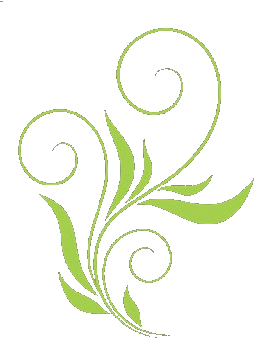THE DIFFERENCES BETWEEN CBD AND THC
- Krystal Harrell

- May 14, 2019
- 3 min read
Updated: Jul 30, 2022
When it comes to CBD, the one question we hear more than any other is, “Will it get me high?” The simple, fundamental answer is no. Point blank, CBD does not have any psychoactive effect. Understanding why, and how, comes down to understanding the core difference between two very important compounds: CBD and THC.
CANNABIS AND CANNABINOIDS
The cannabis plant is comprised of over 100 different cannabinoids, with more constantly being discovered and studied by scientists. Once inside your body, these cannabinoids interact with your endocannabinoid system (ECS), which we discussed in our previous blog.
The two most prominent and well-known cannabinoids are THC and CBD. Many people have come to think of marijuana and cannabis as being synonymous, but that’s not true. Marijuana is only a variety of cannabis that’s chemically dominated by THC. On the other hand, hemp - another variety of cannabis that’s completely distinct from marijuana - is comprised primarily of CBD, with essentially no THC (less than .3%). And from there, modern manufacturers can further extract and isolate cannabinoids from cannabis plants to produce products with just about any combination of TCH and CBD you can think of. It’s all cannabis, but the amount of THC and/or CBD in whatever cannabis product you’re using makes all the difference when it comes to the effect on your body and mind.

THC (tetrahydrocannabinol) As we covered above, THC dominates in the marijuana plant and is known for its ability to make people feel a sense of euphoria. To continue the analogy above, THC is the “key” that unlocks your cannabinoid 1 receptors (CB1), which are found primarily in the brain and the central nervous system, producing psychoactive effects. The exact nature of those psychoactive effects vary by the type of of marijuana - some may put you to sleep, others make you imagine you’re dancing on a cloud - but invariably, if we’re talking about feeling “high” then we’re talking about THC.
CBD (CANNABIDIOL)
If THC is the wilder one in the cannabinoid family, CBD is its older sibling who chose to settle down and raise a family. In contrast to THC, CBD is typically derived from hemp, not marijuana, and doesn’t produce any psychoactive effects. Even at particularly high doses, CBD is completely non-psychoactive. In fact, because it shows little affinity for the same receptors that THC so strongly binds to (CB1 and CB2 receptors if you like specifics), CBD can actually help suppress the effects of THC.
Because the ECS connects to a wide-variety of body systems, including digestion, sleep, pain, immune-system responses and more, CBD is unique in its potential to improve a wide-range of systems. For example, CBD is being shown to decrease the body’s absorption of anandamide, a neurochemical linked to feeling of bliss. Slowed absorption can mean increased levels of anandamide, which in turn can help people feel a lift in their mood and a decrease in anxiety. And, CBD has also been shown to de-sensitize the TRPV1 receptor, which has been linked to the kind of burning sensation pain felt by those with nerve damage.
The science is only starting to catch up with the potential of CBD, but without the psychoactive effect of THC and without the damaging and addictive qualities of opiates, more and more people are turning to CBD as a wellness alternative.







Comments